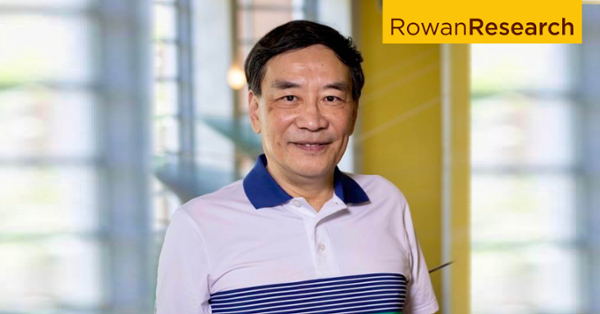From chopsticks to sweet potatoes: Everyday items that shaped the course of history
From chopsticks to sweet potatoes: Everyday items that shaped the course of history

The smallest details of daily life can play a huge role in shaping the course of global history, as demonstrated by Q. Edward Wang, Ph.D., history professor in the Ric Edelman College of Communication, Humanities & Social Sciences.
For many years, the U.S.- and China-educated researcher and educator has studied historiography—how history is written—as well as cultural and global history.
Q. Edward Wang, Ph.D.
Historian
Areas of expertise: Global historiography, cultural history, intellectual history, Chinese history, Asian historyMore information
Among his many books, he co-authored A Global History of Modern Historiography (Longman/Pearson, 2008; revised edition 2017), which was translated into multiple languages. He also edited Historiography: Critical Readings (Bloomsbury Academic Publishing, 2021), a four-volume work with 1,500 pages.
Developing from his interest in cultural history—how daily life shapes history—he published Chopsticks: A Cultural and Culinary History (Cambridge University Press, 2015). It was the first book written in English on the topic, tracing the beginning of chopstick use in ancient China and how it spread to other parts of Asia. It was named a Choice Outstanding Academic Title and has been translated into Chinese, Japanese and Korean.
For the last five years, Wang has been researching the global history of the sweet potato and how the dietary staple contributed to population growth in Asia and Africa in modern times.
“I hope my book can reveal that the sweet potato played a similarly important historical role as the white potato in shaping the modern world,” Wang said.
Wang would like his global and cultural research to help offset nationalistic attitudes, shifting the focus to how cultural exchanges in the past and present shape lives.
“In my research on chopsticks and the sweet potato, I’m taking a global approach. That’s very important. The modern world was not just shaped by the rise of modern nation states but also by other material cultural exchanges—crops, plants and so on.”
Rowan University researchers are passionate about what they do. Find more at Meet Our Researchers.